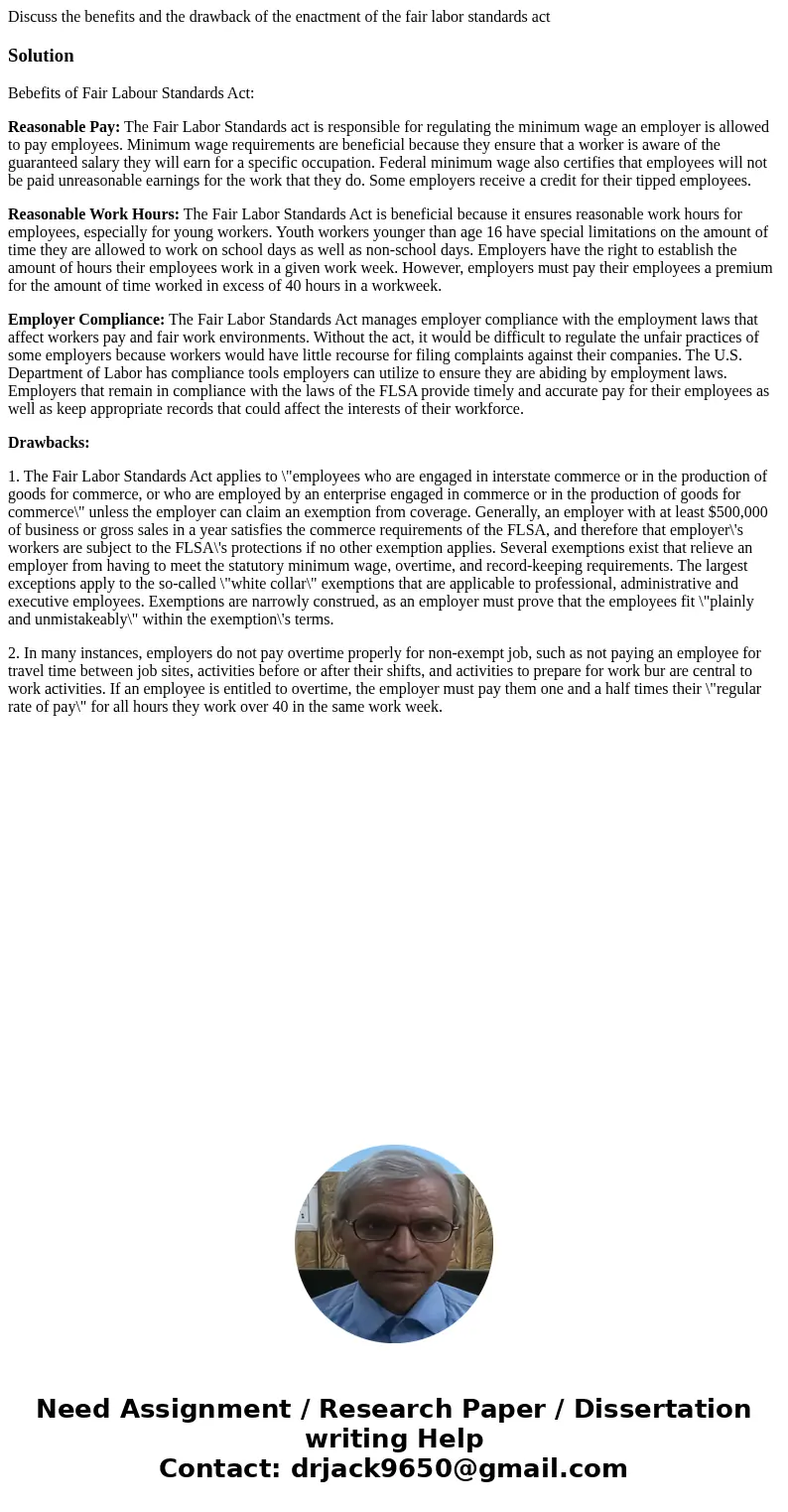Discuss the benefits and the drawback of the enactment of th
Discuss the benefits and the drawback of the enactment of the fair labor standards act
Solution
Bebefits of Fair Labour Standards Act:
Reasonable Pay: The Fair Labor Standards act is responsible for regulating the minimum wage an employer is allowed to pay employees. Minimum wage requirements are beneficial because they ensure that a worker is aware of the guaranteed salary they will earn for a specific occupation. Federal minimum wage also certifies that employees will not be paid unreasonable earnings for the work that they do. Some employers receive a credit for their tipped employees.
Reasonable Work Hours: The Fair Labor Standards Act is beneficial because it ensures reasonable work hours for employees, especially for young workers. Youth workers younger than age 16 have special limitations on the amount of time they are allowed to work on school days as well as non-school days. Employers have the right to establish the amount of hours their employees work in a given work week. However, employers must pay their employees a premium for the amount of time worked in excess of 40 hours in a workweek.
Employer Compliance: The Fair Labor Standards Act manages employer compliance with the employment laws that affect workers pay and fair work environments. Without the act, it would be difficult to regulate the unfair practices of some employers because workers would have little recourse for filing complaints against their companies. The U.S. Department of Labor has compliance tools employers can utilize to ensure they are abiding by employment laws. Employers that remain in compliance with the laws of the FLSA provide timely and accurate pay for their employees as well as keep appropriate records that could affect the interests of their workforce.
Drawbacks:
1. The Fair Labor Standards Act applies to \"employees who are engaged in interstate commerce or in the production of goods for commerce, or who are employed by an enterprise engaged in commerce or in the production of goods for commerce\" unless the employer can claim an exemption from coverage. Generally, an employer with at least $500,000 of business or gross sales in a year satisfies the commerce requirements of the FLSA, and therefore that employer\'s workers are subject to the FLSA\'s protections if no other exemption applies. Several exemptions exist that relieve an employer from having to meet the statutory minimum wage, overtime, and record-keeping requirements. The largest exceptions apply to the so-called \"white collar\" exemptions that are applicable to professional, administrative and executive employees. Exemptions are narrowly construed, as an employer must prove that the employees fit \"plainly and unmistakeably\" within the exemption\'s terms.
2. In many instances, employers do not pay overtime properly for non-exempt job, such as not paying an employee for travel time between job sites, activities before or after their shifts, and activities to prepare for work bur are central to work activities. If an employee is entitled to overtime, the employer must pay them one and a half times their \"regular rate of pay\" for all hours they work over 40 in the same work week.

 Homework Sourse
Homework Sourse